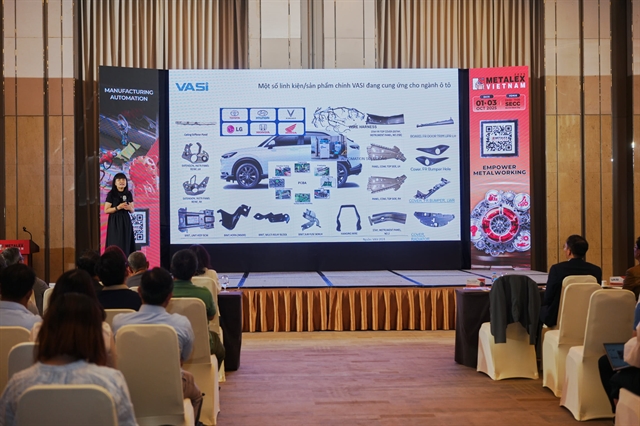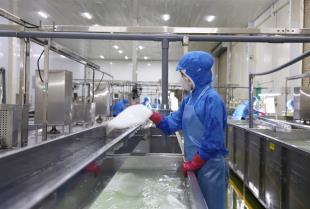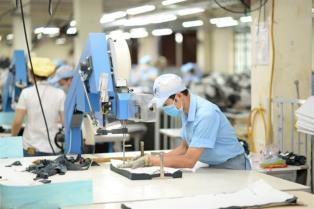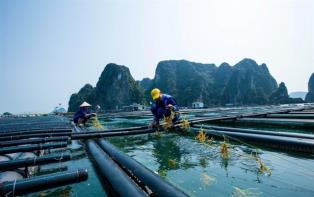As global trade shifts and challenges mount, experts at M-TALKS 2025 in HCM City call on Vietnamese manufacturers to upgrade technology, boost competitiveness and embrace global standards to thrive in a rapidly evolving supply chain landscape.

HCM CITY — The global economy is undergoing rapid transformation. Supply chains are shifting, trade tariffs are rising, and regulatory barriers are creating unprecedented challenges for domestic manufacturers.
These developments require manufacturing firms to enhance internal capacity, improve production efficiency and competitiveness and diversify their markets, experts said at a forum in HCM City on Thursday.
Speaking at the manufacturing forum M-TALKS 2025, Trần Hồng Quân, commercial director of RX Tradex Vietnam, emphasised that the mechanical engineering industry is playing an increasingly strategic role in Việt Nam’s industrialisation and modernisation journey, particularly amid global geopolitical and technological shifts.
As a core pillar supporting various industries, the industry serves not only as a production foundation but also as a long-term growth driver that fuels trade, exports and technology transfer.
According to the General Statistics Office, Việt Nam’s industrial production index grew by 9.2 per cent year-on-year in the first half of 2025, with the manufacturing sector leading the recovery. During the same period, the sector attracted over US$12 billion in foreign direct investment, accounting for 55.6 per cent of total registered capital, highlighting the strong appeal of Việt Nam’s production value chain.
This momentum is further reinforced by large-scale public infrastructure projects underway across the country, including the North–South Expressway and Long Thành International Airport.
“These projects not only upgrade inter-regional connectivity infrastructure but also drive robust demand for equipment, machinery, machining solutions, automation and precision manufacturing,” Quân said.
However, the sector also faces mounting challenges, especially from US reciprocal tariffs.
“This has placed many businesses under increased pressure, with rising costs, stricter requirements for supply chain transparency and heightened risks of losing orders,” he noted.
At the same time, new-generation Free Trade Agreements are imposing stricter standards on rules of origin, product quality, and sustainable governance.
“In this context, Vietnamese mechanical engineering enterprises must not only upgrade their machinery but also standardise production processes, ensure supply chain transparency and enhance management capacity in line with international standards,” Quân added.
Echoing his views, Dr. Trương Thị Chí Bình, vice president and General Secretary of the Vietnam Association for Supporting Industries, warned that reciprocal tariffs from the US could have wide-reaching effects, including a slowdown in new FDI and hesitation among existing foreign investors to expand.
Furthermore, as China adapts to trade pressures by seeking new markets, Vietnamese manufacturers may face fiercer competition abroad. Domestically, zero tariffs on US imports could erode market share and limit growth opportunities for local manufacturers, particularly in the automotive sector.
“In this context, Vietnamese enterprises must enhance their internal capabilities,” Bình stressed.
Only companies that can meet strict quality and pricing expectations will survive and thrive, she said.

Panelists at the forum highlighted several critical differentiators for Vietnamese suppliers in today’s competitive landscape, including investment in research and development (R&D), strong design-to-production capabilities that meet international standards, full control over supply chains and ongoing innovation, and having certifications and flexibility to meet evolving buyer demands.
Each buyer has different criteria. Suppliers must not only meet certification standards such as ISO or CE but also remain price competitive and flexible in delivery and customisation, they said.
Lê Nguyễn Duy Oanh, deputy director of the HCM City Centre for Supporting Industries Development, emphasised the importance of clearly identifying target customers and committing to long-term strategies.
Domestic firms must collaborate more closely to fulfill larger orders, she said.
She also stressed the need for local firms to strengthen branding, optimise production and actively engage in global supply chains.
Being proactive is essential, she said, adding that companies must develop professional capability profiles, participate in trade shows, and seek international partnerships if they wish to integrate into global value chains.
Held under the theme "Unlocking Việt Nam's Industrial Breakthrough: From Manufacturing to Strategic Value in a Shifting Global Supply Chain," M-TALKS 2025 serves as the pre-event forum leading up to METALEX Vietnam 2025, the international exhibition on machine tools and metalworking solutions for production upgrade, scheduled for October 1–3 at the Saigon Exhibition and Convention Centre.
According to Quân, the exhibition will feature more than 250 leading mechanical engineering brands from countries such as Japan, Germany, South Korea, the US, China, Singapore and Thailand and is expected to welcome over 15,000 visitors.
The exhibition will continue to offer a comprehensive technology ecosystem tailored to the needs of production line upgrades, machinery and equipment investment, and digital transformation in factories. — VNS





